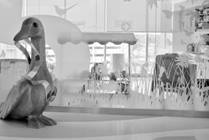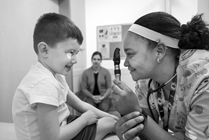Search Results
Viewing: 21-30 of 1469 | All
Article
Airborne Precautions
Airborne precautions are used when germs, such as the kind that cause tuberculosis and chickenpox, can be spread through the air from one person to another.
Educational and Clinical Resources
Access educational behavioral health resources for your patients and clinical tools for your practice.
Polydactyly
Polydactyly refers to extra fingers or toes that are present at birth. Polydactyly usually is genetic. These extra digits can be made up of one or more of the following: Skin, soft tissue and bone with joint, ligament, and tendon.
Article
Hard Splints
This Helping Hand™ explains how to care for your child while they have a splint.

Condition
Nursemaid's Elbow
This Helping Hand™ explains what Nursemaid's elbow is and talks about how to prevent it.
Article
Crutch Walking
Crutches may be used to keep weight off a leg or foot while it is healing. Your health care provider will check one of the weight-bearing instructions below: Non-Weight-Bearing (NWB) – Do not put any weight on the injured foot or leg.

Article
Eye Surgery Under Anesthesia
This Helping Hand™ is about how to prepare for eye surgery under anesthesia.
